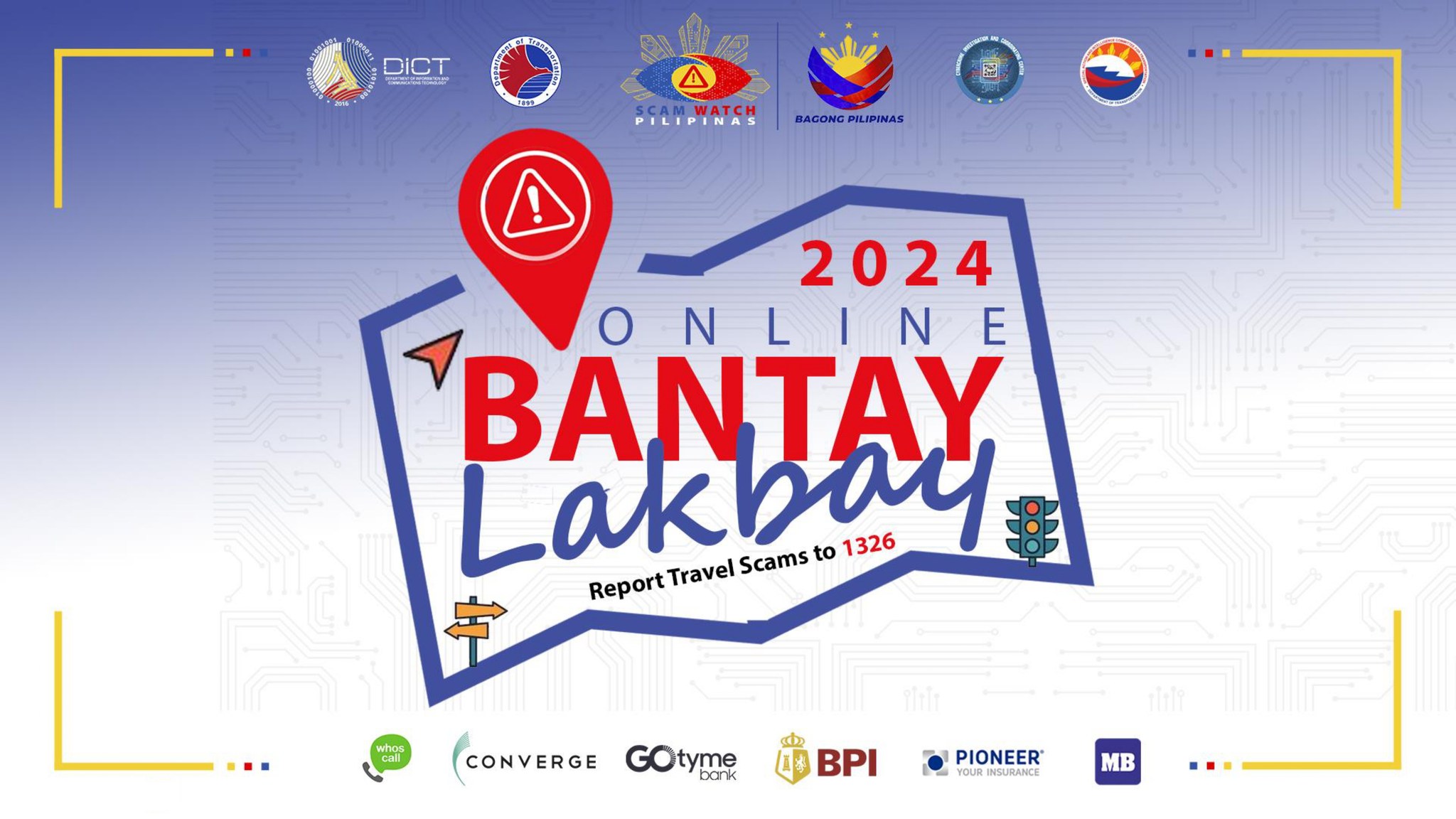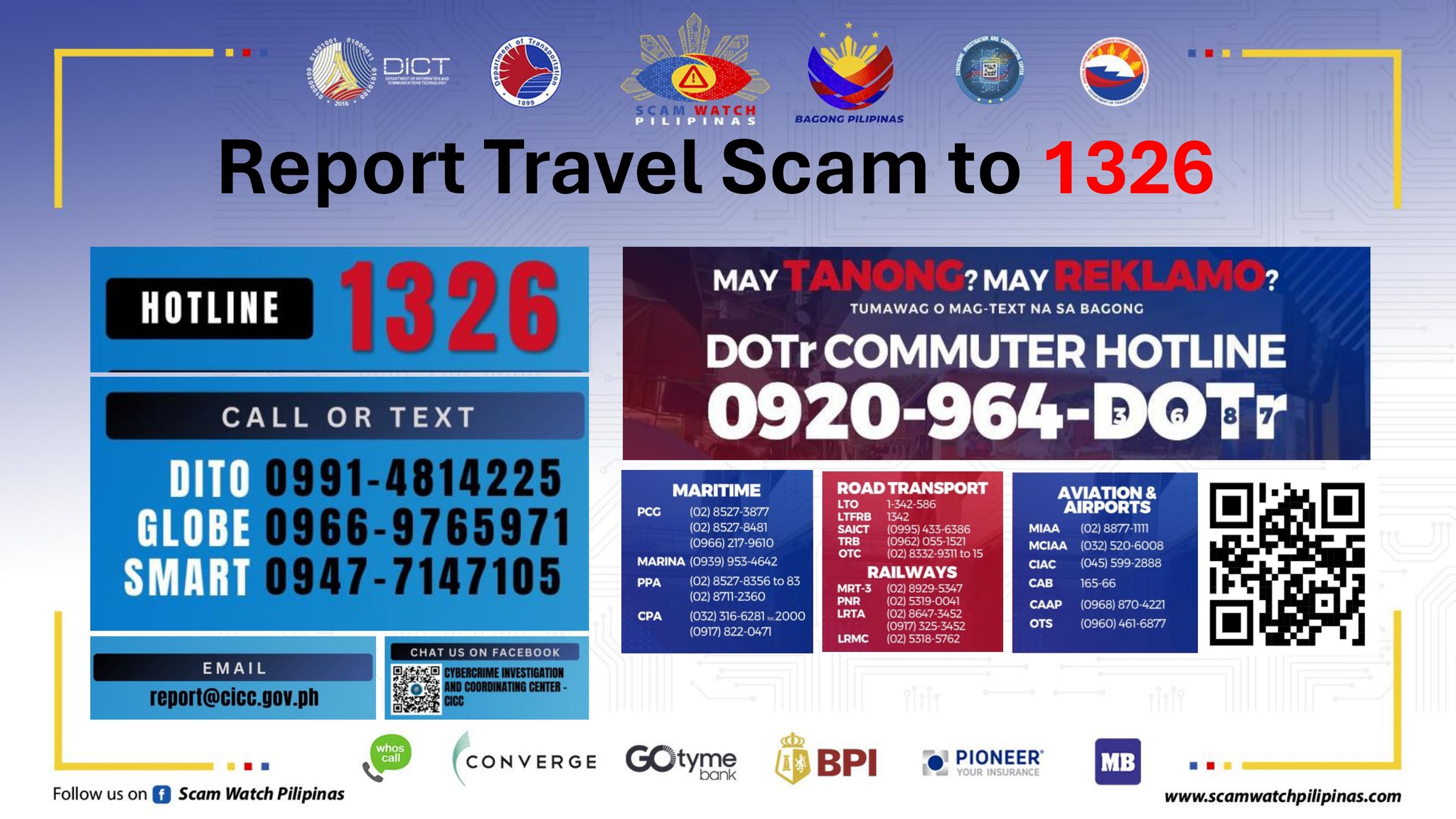
By Brian Jules Campued
Who does not want a hearty laugh from a good joke? April Fools’ Day might be one of the most-awaited days of the calendar for most people as it somewhat gives a chance to pull pranks on others or to simply have fun…not until criminals use that merriment to spin stories and scam unsuspected folks.
As the hot weather makes us seek the refreshing breeze and touch of the ocean or the cooler temperature of Baguio City, all the more we must exercise caution in looking for legitimate travel packages to prevent our hard-earned money falling into the wrong pockets.
The Scam Watch Pilipinas on March 14, along with the Cybercrime Investigation and Coordinating Center and the Department of Transportation, unveiled a list of travel scams to watch out for before booking your next vacation trip:
Fake accommodation
With these vacation scams, culprits use “enticing villas, apartments, or even seemingly legitimate hotel rooms” advertised at unbelievably low rates to deceive interested individuals.
“However, there’s no booking once the traveler arrives despite having paid in advance,” Scam Watch Pilipinas said.
Fake Wi-Fi
Hackers set up fake hotspots disguised as public Wi-Fi to steal personal information, particularly banking details.
Scam Watch advises the public to secure their connections or as much as possible, avoid making sensitive transactions on public Wi-Fi.
‘Too good to be true’ deals
Scammers send unsolicited emails or messages in social media platforms promising “the lowest prices” on flights and hotels which then disappears once the payment has been transacted.
Hence, when an offer looks too good to be true, better take a step back and verify with the company involved to confirm if the deals are real.
‘Free’ vacation traps
One day you open your email and see a message saying you have won a “free trip” to some place you have been wanting to visit—who does not want a free vacation, right? Little did you know that these promos often involve hidden costs or high-pressure timeshare sales.
“Others will ask you to answer a survey to get free airfare and accommodation,” Scam Watch added.
Fake travel agents
In this type of scam, culprits impersonate a travel agent from a “reputable” agency to offer special deals to entice unsuspecting individuals. Once payment has been made, these agents vanish.
Overpriced tours
Inflated prices for exclusive tours or activities at popular tourist destinations are being used by scammers to lure travelers who did not compare prices of itineraries beforehand.
Charity Cons
Criminals use fake charitable organizations to make a deceptive website appear more trustworthy, urging generous victims to “donate” on top of their travel booking.
“To avoid falling victim, donate solely to reputable, established charities and ensure their legitimacy,” Scam Watch reminded the public.
Counterfeit cash
“Attractive exchange rates might mask the circulation of counterfeit money,” the campaigners said, advising tourists to use official exchange outlets and familiarize themselves with the local currency of their destination.
Hidden CCTVs
An emerging trend in vacation scams which involves the use of hidden cameras in rented accommodations without the guests’ consent or knowledge. These cameras are often hidden in everyday objects such as smoke detectors, alarm clocks, or decorative pieces.
Fake Taxi
Upon arrival at the airport, look out for people inviting you to a private car service to take you to your destination. These private cars do not have meters and will charge passengers excessively.
Selling lost luggage on Facebook
Scam Watch Pilipinas also refutes Facebook posts claiming that lost luggage are for sale. It added that airline agencies and operators have protocols in keeping or disposing lost or left-behind items at the airport.
Fake SIMs
Criminals also sell discounted SIM cards to be used in other countries, saying it will save the tourists’ mobile internet.
Fixer
Unauthorized individuals, often representing as government employees, offer convenient and faster transactions to avoid lines at the airport, seaport, bus terminals, or train stations.
Cheap airline tickets on social media
The CICC also warned the public against cheap airline tickets being sold on social media, which usually comes with a time limit to pressure interested individuals to buy immediately.
Through the 2024 Online Bantay Lakbay campaign, authorities encouraged tourists to verify the companies or agents involved in the travel offers they see online before booking. Bureau of Immigration spokesperson Dana Sandoval likewise reminded the public that eTravel, the government’s one-stop electronic travel declaration system, is free amid a rampancy of fake websites charging people.
When travel scams are spotted, report them to 1326 immediately. – avds

